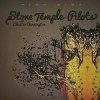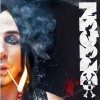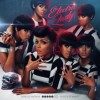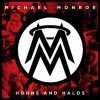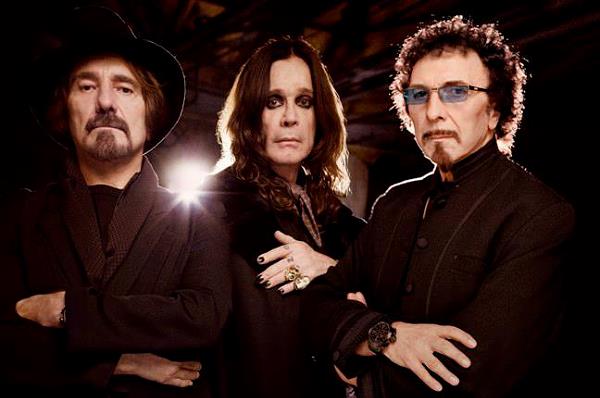
It all kicked off in 1978. Black Sabbath’s eighth studio album, Never Say Die!, was met with apathy by fans and critics alike, and they subsequently fired singer Ozzy Osbourne amid a haze of booze and narcotics. Vocalists came and went, with mixed results, until the original members built some bridges as the '90s drew to a close. Still, though, a new album didn’t arrive.
Well, it’s finally here. It’s been a long time since a new album from Black Sabbath felt like a significant cultural event. But 43 years on from their debut, they’ve not only made a new record, they’ve scored a number one with it in 50 countries, including the US and UK. Ozzy has stated multiple times that ‘13’ could be the most important album of his career, and with that prediction he wasn’t far off. 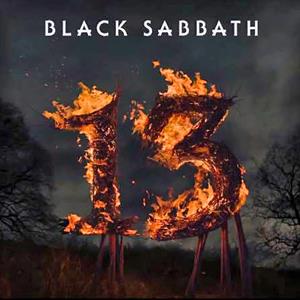
The build-up to ‘13’ turned it into one of the most anticipated metal albums of the 21st century, but it almost didn’t happen. The premature departure of drummer Bill Ward and Iommi’s cancer diagnosis brought the momentum of one of the world’s greatest rock bands to an abrupt halt. Cancer didn’t stop Iommi, though, and instead of throwing in the towel, Sabbath channelled all that darkness into one of their finest works to date.
"Rewind the future to the past," instructs Ozzy on End Of The Beginning, the album’s opener. Squinting back down the highway towards their doom-metal prime, Sabbath deliver something that practically demands for rock to return to a back-to-basics approach.
Scientific symbolism, religious ramblings and images of death permeate the record - lyrically, nothing has changed. On one of their heaviest and most haunting cuts to date, God Is Dead?, Osborne sings: “Blood on my conscience and murder in mind, out of the gloom I rise up from my tomb, into impending doom. Now my body is my shrine”.
What sets Black Sabbath apart from their contemporaries is that they play as if possessed. They find a groove and lock into it for an entire album, as on Age Of Reason. Iommi takes the reins with this one and his rich, moody melodies are that signature Sabbath sound that we all know and love.
Damaged Soul glides along to a bluesy rhythm from Rage Against the Machine's Brad Wilk, and he complements Geezer Butler nicely. Wilk’s recruitment works well for the band, but it is hard not to wish that Ward had played some role in this chart-topping gem of an album.
Resurrecting riffs from one of the more psychedelic places in their career, ballad Zeitgeist worships at the altar of Paranoid’s Planet Caravan, with exotic percussion, wind instruments and a distorted filter placed over Ozzy’s voice. Groovy licks are thrown in for good measure in Pariah and contrary to its title, Loner shows one of the more lively sides to ‘13’.
Haunting melodies and grandiose riffs conclude the album with a welcome blast of rousing optimism. Ultimately, ‘13’ is the album Sabbath were destined to make, and it reveals itself as a summing-up of their career to date. To millions of hardcore fans it won’t be remembered as their best, but for a record almost 13 years in the making, it really was worth the wait.
NOTE FROM THE EDITOR
We don't run any advertising! Our editorial content is solely funded by lovely people like yourself using Stereoboard's listings when buying tickets for live events. To keep supporting us, next time you're looking for concert, festival, sport or theatre tickets, please search for "Stereoboard". It costs you nothing, you may find a better price than the usual outlets, and save yourself from waiting in an endless queue on Friday mornings as we list ALL available sellers!
Let Us Know Your Thoughts
More Reviews from Gemma-Louise Johnson
Related News
Mon 17 Feb 2025
Tool, Guns N' Roses And Rival Sons Join Line-Up For Black Sabbath's Final Show This Summer
Fri 14 Feb 2025
Black Sabbath Tickets For Final Show At Birmingham's Villa Park On Sale 10am Today
Wed 12 Feb 2025
Electric Funeral: Predicting The Collaborations At Black Sabbath's Big Farewell
Wed 05 Feb 2025
Ozzy Osbourne To Reunite With Black Sabbath For Final Performance At Birmingham's Villa Park In July
|



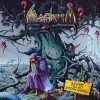
.jpg)
